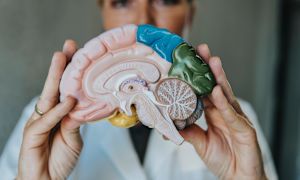The physiological changes that occur during menopausal transition begin with your ovaries producing fewer eggs. Eventually, the ovaries no longer release eggs into the fallopian tubes and your menstrual cycle ends. You will have a drop in the female hormones estrogen and progesterone.
Low estrogen levels may cause hot flashes, night sweats, and vaginal dryness and irritation. You may also experience discomfort or pain during sex and lose your desire for sex. You can also experience memory loss, hair thinning and depression during the menopause transition.
Continue Learning about Menopause
Important: This content reflects information from various individuals and organizations and may offer alternative or opposing points of view. It should not be used for medical advice, diagnosis or treatment. As always, you should consult with your healthcare provider about your specific health needs.




